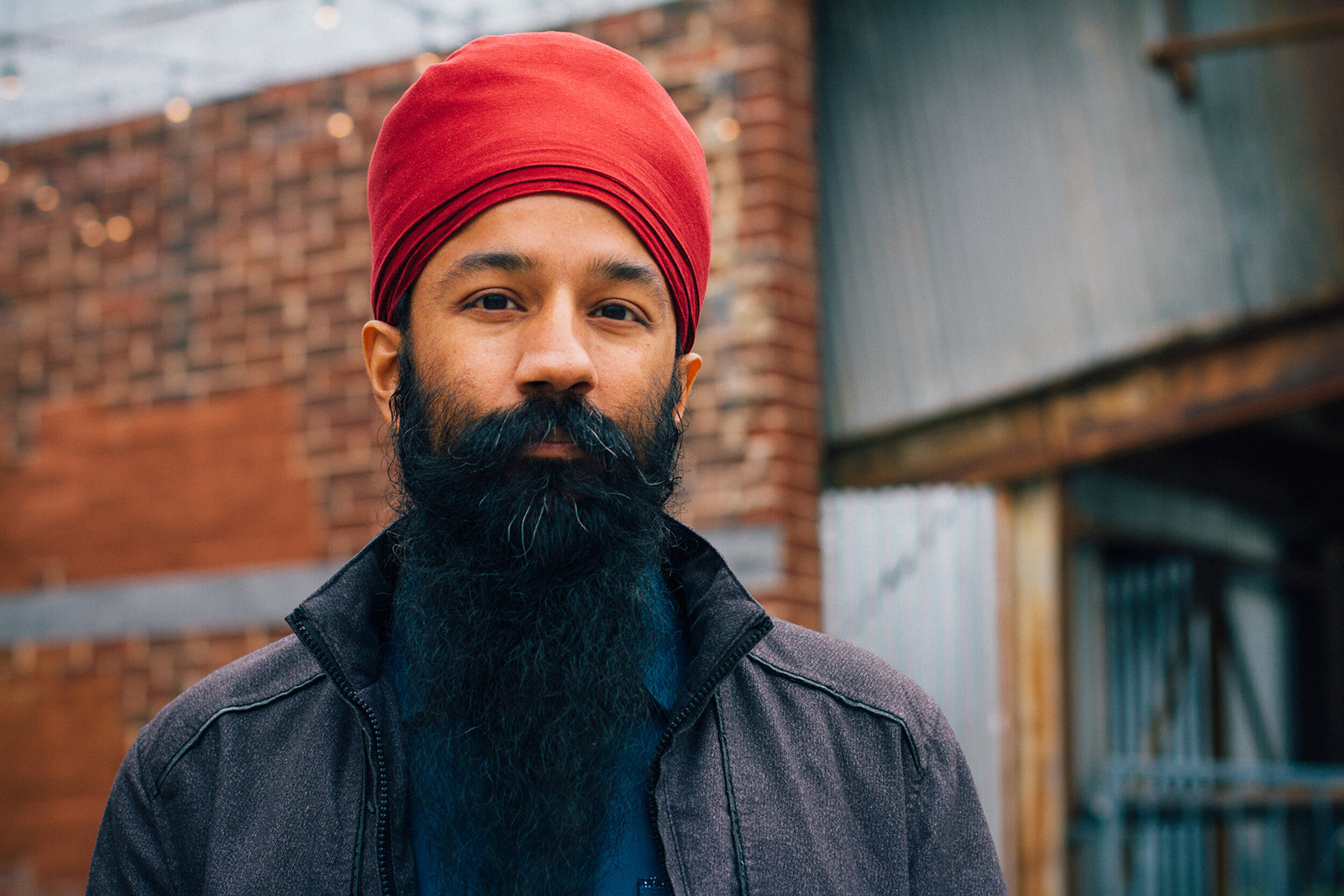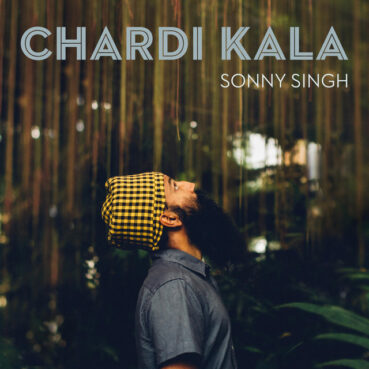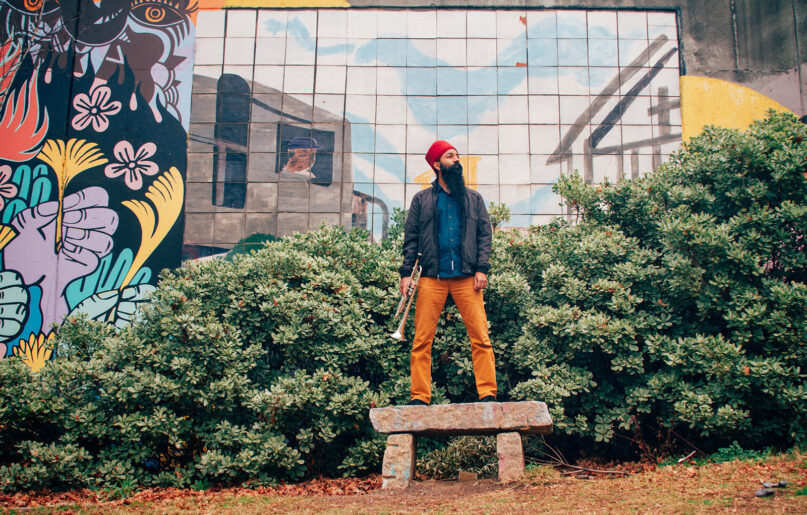(RNS) — For more than a decade Sonny Singh has been perhaps the most recognizable figure when the Punjabi-influenced band Red Baraat takes the stage, not just for his alternately declarative and sinuous trumpet playing but for his red turban bobbing alongside Red Baraat founder Sunny Jain. Now Singh, an activist as much as he is a musician, has released his first solo album, blending his politics and music with another core part of his identity — his Sikh faith.
Singh’s album, “Chardi Kala” (a Sikh term for “ever-rising spirit”), melds Western and South Asian sounds with the traditional Sikh genre known as kirtan. But it’s not just world music: Singh’s lyrics are inspired by and drawn from Sikh teachings.
I spoke with Singh (no relation) about his inspiration, process and vision for this new album. This interview has been edited for length and clarity.
You marry Sikh writings with your own distinctive style. What in particular inspired this album?
This album is coming full circle for me in a sense. The first music I ever played when I was a young child was Sikh kirtan. Yet, in my 15-plus years as a professional, I had never seriously revisited Sikh devotional music until early 2019, when the seeds for this album were planted. Honestly, I first began returning to some of the shabads (Sikh Scripture) I had learned as a child because I needed some spiritual grounding in the dark days of the Trump administration and the rising tide of authoritarianism and nationalism globally. One thing led to another quickly, and I started composing my own music to accompany these verses, which were written hundreds of years ago.
How does your political worldview show up on this album?
For Sikhs, it is a spiritual duty to be a freedom fighter. There is no separation of the spiritual and the political. So I wanted this album to be a musical embodiment of that concept of miri-piri (temporal and spiritual power).
RELATED: ‘You can’t talk about that’: The art of sharing Sikh experiences on Netflix
Gurbani (Sikh devotional poetry) is not simply meant to be recited quietly in our homes and gurdwaras — it is a call to action. If we reflect, for example, on Guru Arjan’s words “Koi bole ram ram, koi khudai,” (“Some call God Ram, some call God Khuda”), we must ask ourselves what do these words mean today? How can I incorporate this message into my life?

Musician Sonny Singh. Photo by Shruti Parekh
In a context of rising Hindu nationalism and state-sanctioned violence inflicted on Muslims, religious minorities and dalits and bahujans in India, Guru Arjan’s words urge us to get involved and speak out against the atrocities of the Modi administration.
I also wanted to bring to the album the slightly more recent revolutionary history of the Ghadar Party, founded in the early 1900s in Stockton, California, with the goal of overthrowing the British Raj in India. Two songs on the album invoke the fearless words of Kartar Singh Sarabha, who was executed by the British at 19 years old for his activities.
Innovation, especially with traditional religious music and teaching, can be provocative. How has the community responded?
I respect and admire those who study and work to replicate and preserve “traditional” forms of music through their art, including kirtan played in the original raags and stringed instruments. But I put traditional in quotes because I question the concept in and of itself. Music, and all art, is always evolving and changing when different communities interact, migrate, share instruments, language and cultural practices. My intention with this album was not to do “rock kirtan” or “reggae shabads,” but to be true to my heart and my intuition as an artist and a Sikh. The way I hear and feel music cannot be confined to any one genre or style. It’s just not who I am.
By and large so far, I’ve gotten an overwhelming response of love and support from Sikhs, and not surprisingly a bit of vocal opposition as well. Unfortunately the Sikh community is no exception to the dogmatic and narrow-minded pitfalls that come up in organized religion. Some of the naysayers even resort to cursing me out and threatening me for my supposedly blasphemous renditions of Sikh shabads. The irony is too much. That being said, the music really seems to be resonating with the vast majority, including elders in our community. My parents are huge fans.
You’ve named the album “ever-rising spirit.” Where do you hope it will take you?

Sonny Singh’s “Chardi Kala.” Courtesy image
The album is called “Chardi Kala” because that is its aspiration — to inspire us to remain in high spirits, in eternal optimism in the midst of these trying times. It is not possible to continue fighting against oppression and exploitation without the steadfast and revolutionary belief that justice and dignity will ultimately prevail. This album is my humble offering in that path. I hope my album will inspire Sikhs and non-Sikhs alike to reflect more deeply on Gurbani and incorporate these words of revolutionary love into how we live our lives.
RELATED: Religious groups are ‘making a joyful noise’ with outdoor instruments
And I look forward to taking this music on the road! The live show is a whole other experience for me, my band and the audience — to share space, to sing together, to interact in real time, always in chardi kala.
“Chardi Kala” is available here. Watch his latest single “Aisee Preet” here. Follow Sonny’s work and music on Instagram or Twitter at @iamsonnysingh.






